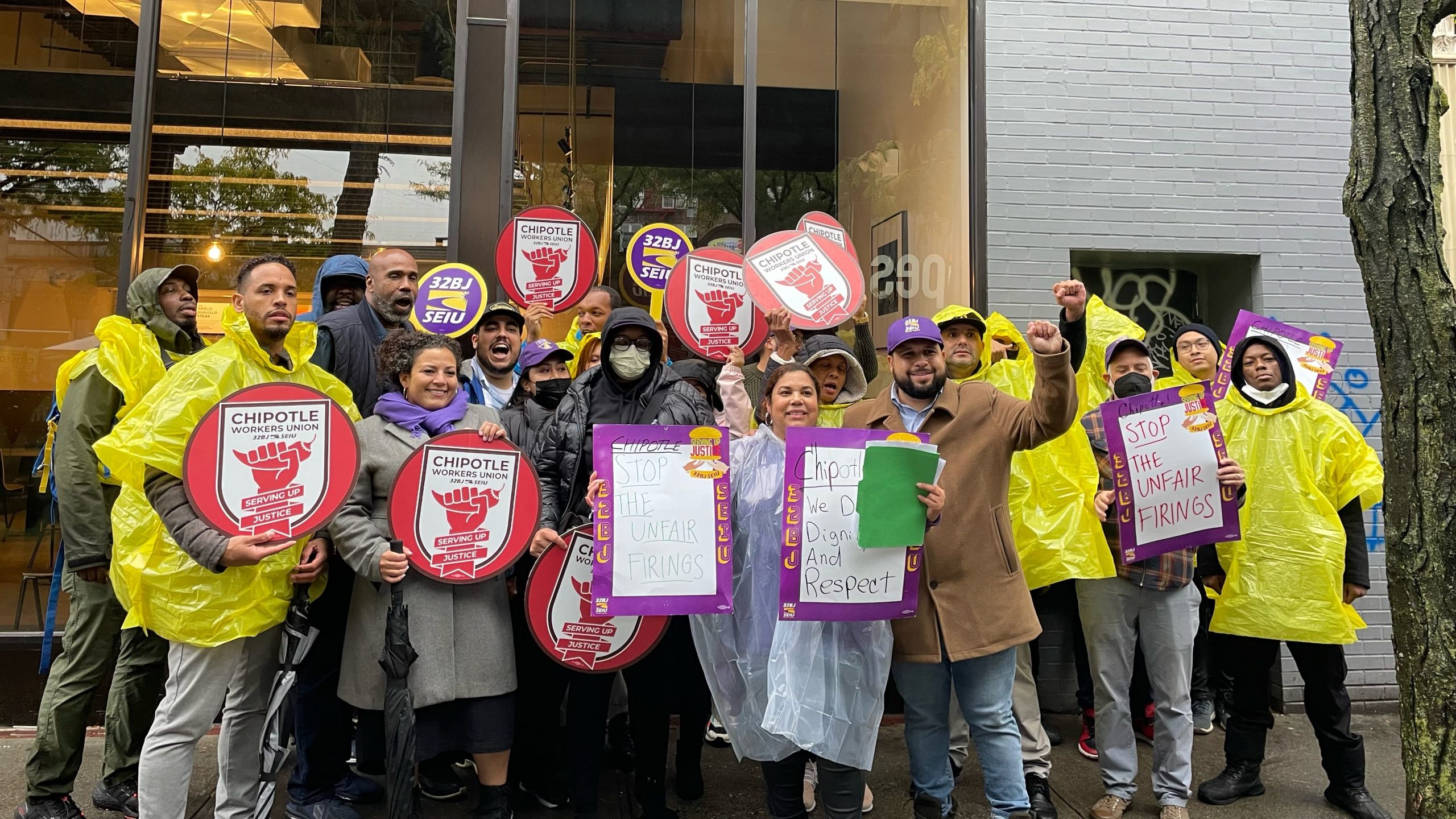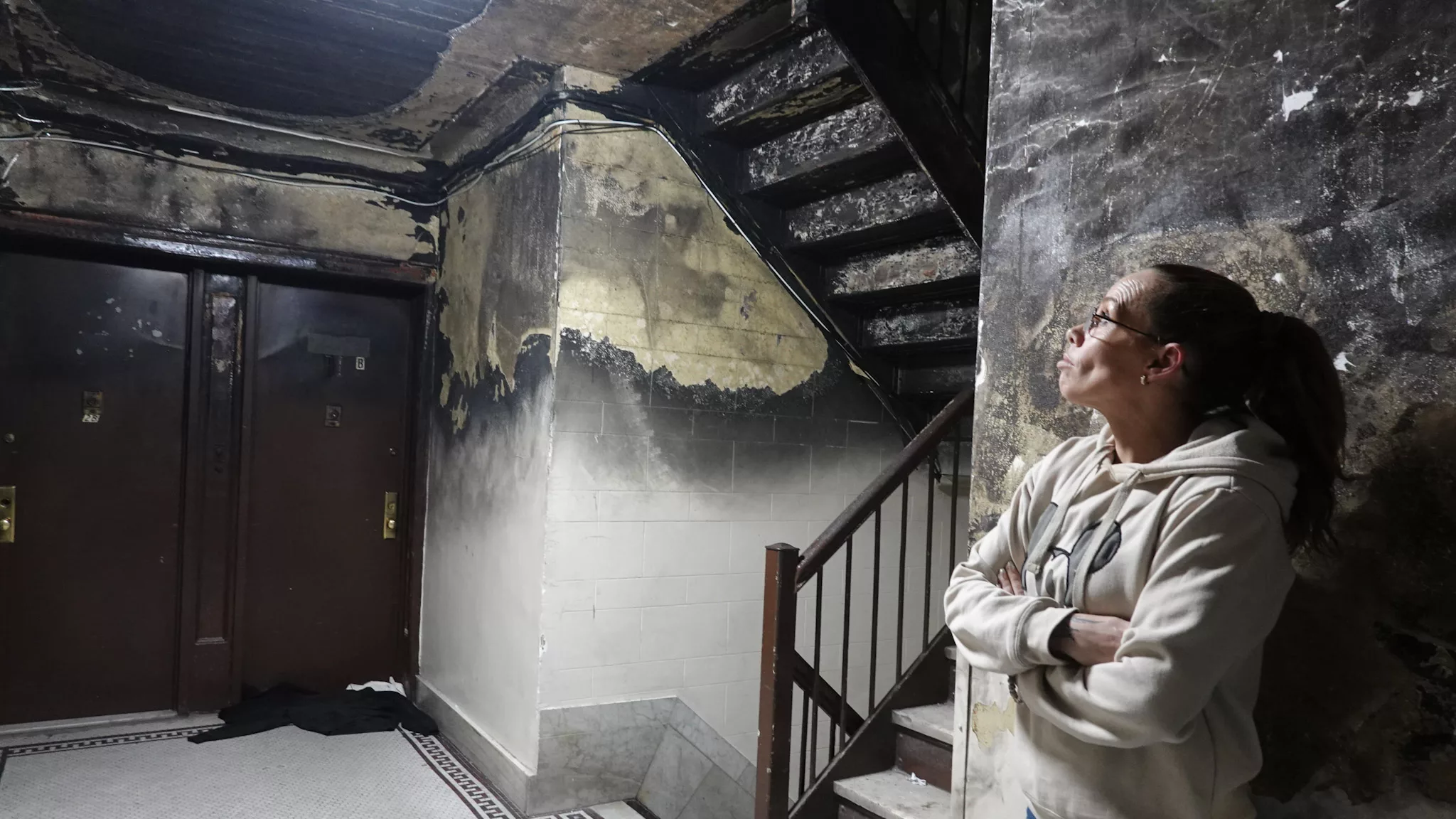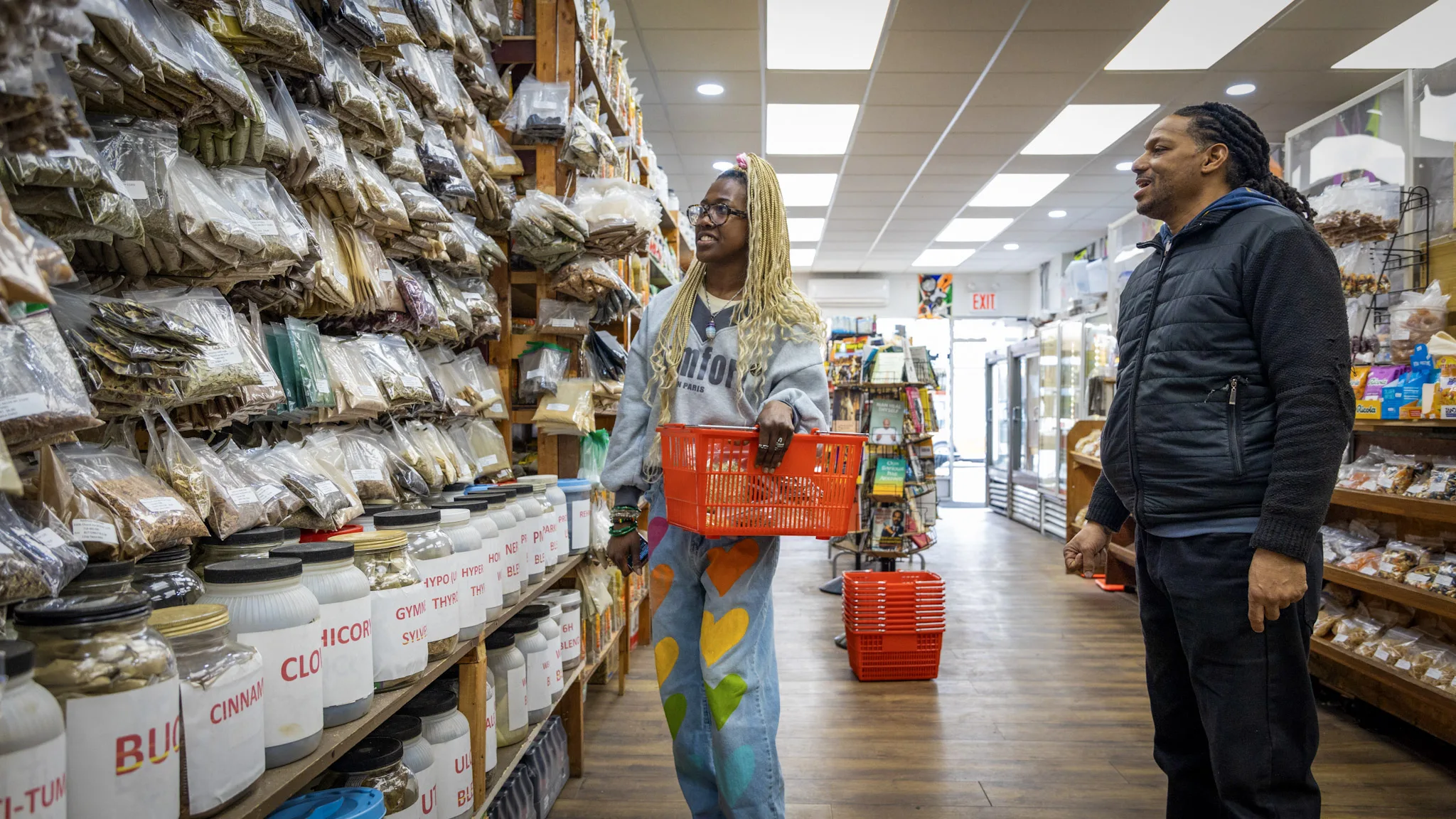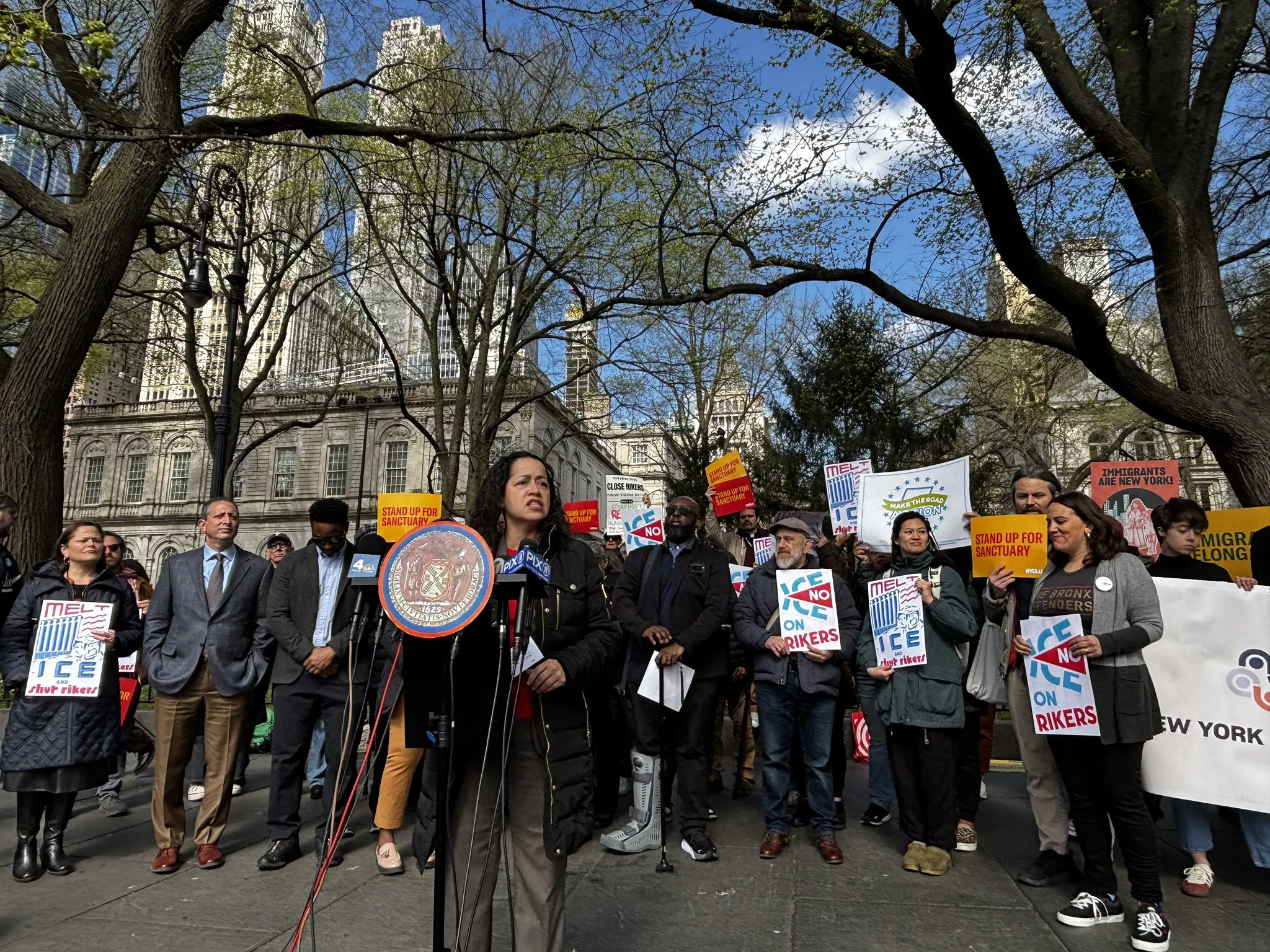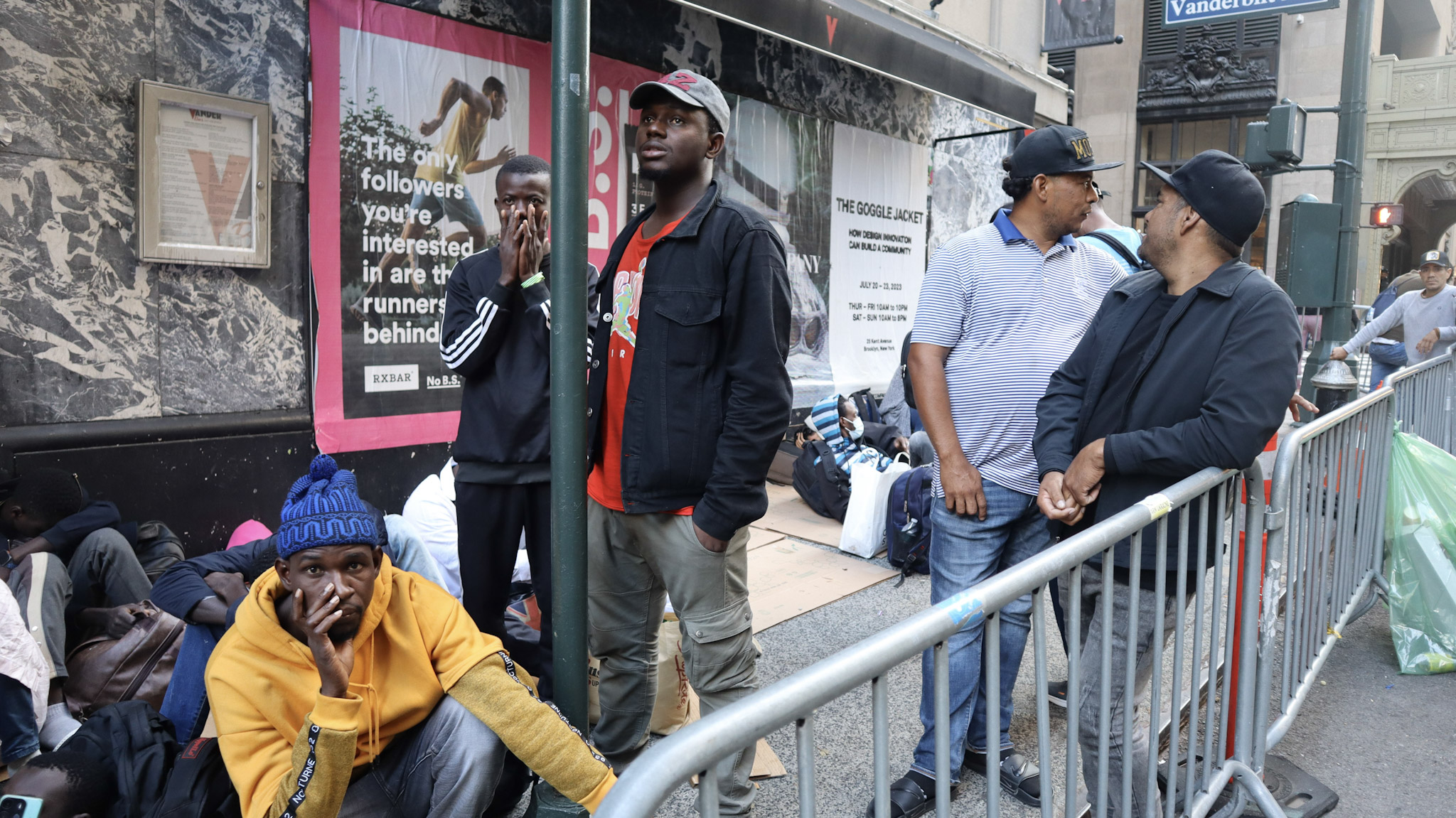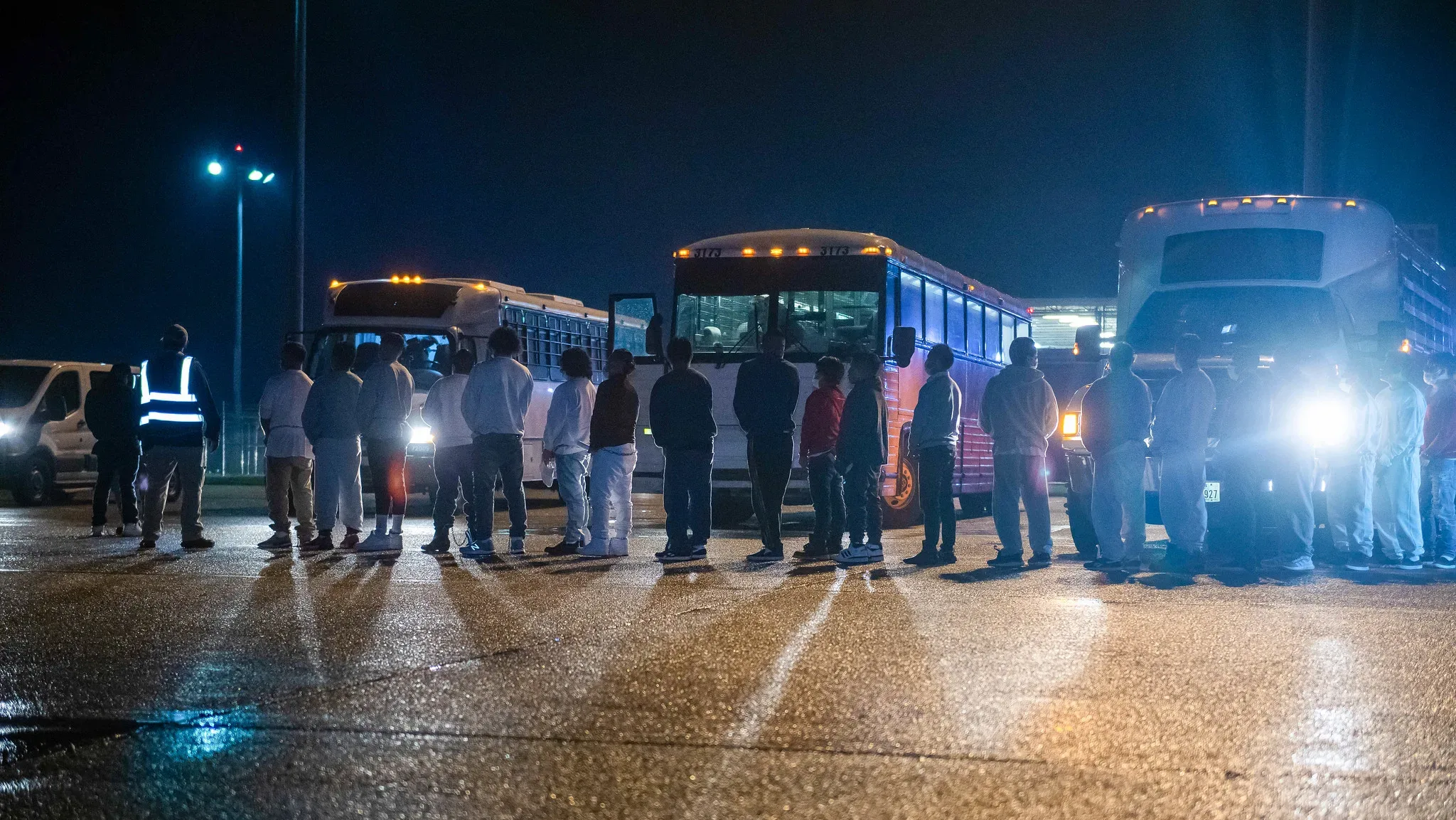It was December of 2021 and the pandemic still appeared to have no end in sight. Like many other Chipotle immigrant workers, Winifer Pena Ruiz made the decision to quit her past job at McDonald’s to go to her new company’s White Plains Road location in the Bronx.
“The pay was better and I thought the hours were going to be better and more flexible,” she said.
Since coming to the U.S from the Dominican Republic in 2018, she has been sending almost every penny she earns back home to support her aging mother. A job at Chipotle, which paid her $17 an hour, $2 more an hour than she earned at McDonald’s, would make a world of difference for her family. Yet three months into the job, she began to grow disillusioned with the company.
“The manager would be very negative to the employees and treat us like we were her little kids,” she said. “She would yell at us and cut our hours.”
Feeling mistreated, last April, 22-year-old Ruiz began organizing her co-workers with the help of 32BJ SEIU to form a union at her location. When she signed a petition demanding an increase in wages, her managers found out and pressured her not to support the union.
“I feel I was being targeted for my involvement, ” Ruiz said. “She said I was crazy for signing the petition and that unions are bad and that they steal people’s money through dues.”
On September 19th, she was fired. Without a job, she can no longer send money back to the Dominican Republic to purchase the vital medication her mother requires.
“It affected me a lot negatively when I got fired,” she said. “My mom depends on me a lot.”
In response, SEIU 32BJ, the union leading the campaign to unionize Chipotle, filed an unfair labor practices charge against Chipotle on Ruiz’s behalf with the National Labor Relations Board.
Ruiz is one of the immigrant workers of Chipotle who claims to be fired due to their union activity. Across the country, overworked and underpaid Chipotle workers, organizing with 32BJ SEIU, have been fighting to form a union. Since 2019, in New York, immigrant workers, who have been leading that fight, have faced workplace retaliation, with several even being fired for their organizing efforts.
Also read: U.S. Open Immigrant Workers Say Their Wages Were Stolen
In 2020, Luisa Mendez, who was employed at Chipotle’s 14th Street location in Manhattan, was fired for using her paid sick time to care for her family. She believed it was in retaliation for her union activity. In April, another immigrant Chipotle worker, Brenda Garcia, claimed that she was also fired for leading union efforts at her Flushing, Queens location. A few months later in July, 16 Chipotle workers filed complaints with the New York City Department of Consumer and Worker Protection (DCWP), claiming management had either cut their hours or were fired for their union efforts.
For nearly a decade, immigrant workers of Chipotle bore the brunt of the company’s toxic workplace practices. In 2011, 600 suspected undocumented workers at Chipotle locations across Minnesota were abruptly fired. Dozens more Latino workers were fired in Washington D.C. without prior warning. After receiving a warning from the Department of Homeland Security, who audited Chipotle’s personnel records and found that it had hired undocumented immigrants, the company initiated mass firings without giving workers sufficient time to prove their status.
“The company used us,” said a fired worker at the time. “And when it didn’t serve them anymore, they threw us away like trash.”
In August, Mayor Eric Adams announced that Chipotle would be forced to pay $20 million to 13,000 Chiptole workers for violating their right to predictable schedules and paid sick leave. The settlement came after 160 Chiptole workers and SEIU 32BJ, complained to DCWP that the company was violating the City’s Paid Safe and Sick Leave Law and its Fair Workweek Law.
Also read: The MTA Says Immigrant Subway Cleaners are Not Entitled to Prevailing Wages
Under the Fair Work Week Law, fast food restaurants can’t fire or reduce the hours of a worker by more than 15 percent without cause. Since the law went into effect in 2017, DCWP has received more than 500 complaints about Fair Workweek violations, opened more than 250 investigations, and obtained resolutions requiring over $24 million in combined fines and restitution for more than 17,000 workers. Still, Ruiz had her hours severely reduced and was abruptly fired, in clear violation of the law.
“No one who bravely decides, as Winifer did, to stand up and demand the respect and dignity all working New Yorkers deserve should ever wonder if doing so will cost them their jobs,” said Kyle Bragg, SEIU 32BJ President. “Sadly, her experience is only one example of Chipotle’s troubled operations in New York.”
Since the settlement, DCWP stated that they are currently investigating Chipotle for possible recent Fair Workweek violations.
In the meantime, last month, the New York City Council Committee on Consumer and Labor Protection held a hearing regarding two key pieces of legislation addressing the problem of fast food companies, including Chipotle, that repeatedly violates the Fair Workweek law. Intro 0613 would allow the City to deny, suspend, or revoke the fast food restaurant permits of the most egregious, repeat violators of these laws. Additionally, Intro 0640 empowers the City to mandate that fast food employers pay for the time their employees spend in training regarding their rights.
Councilmember Carmen De La Rosa, who chairs the Council’s Committee on Civil Service and Labor and is one of the lead sponsors of both pieces of legislation and has been closely following the Chipotle unionization effort for about two years when a store in her Bronx district began to organize. Workers at that location were being fired for unionizing or had their hours cut in retaliation. An immigrant single mother had told De La Rosa that her hours were cut because she couldn’t work evening hours due to her children. Although the City has a Fair Workweek law on the books, on the ground, De La Rosa was learning about continued violations.
“What we are hearing from the reports from the workers locally, from the district, and from across the city is that they are not following those laws, They are violating those laws,” she said.
Also read: Nail Salon Workers Say Proper Ventilation Can Protect Their Reproductive Health
After her discussions with Chipotle immigrant workers in her district, De La Rosa determined that she needed to push for increased protection for these workers.
“The bill I introduced would specifically put at risk their license to be a food service establishment with the City of New York if they continue to be egregious,” she said.
De La Rosa believes that given Chipotle’s refusal to follow labor law, the only way for Chipotle immigrant workers to truly have justice is by forming a union.
“Clearly they are not going to adhere to the city laws and not even to the state laws that are being put in place,” she said. “So they are going to continue to violate, if they have a unionized workplace they will be forced to, one collectively bargain and two, protect these Chipotle immigrant workers and make sure they are not exploited. I think organized labor is one of the tools provided for workers to have those protections in place.”
Responding to Documented’s request for comment, Chipotle denied that Ruiz was fired for her union activity.
“We respect our employees’ rights under the National Labor Relations Act and are committed to ensuring a fair, just, and humane work environment that provides opportunities for all,” said Laurie Schalow, Chipotle’s Chief Corporate Affairs Officer. “Ensuring that our restaurants are in full compliance with applicable laws and regulations is critical, and we encourage our employees to contact us immediately, including through an anonymous 800 number, with any concerns so we can investigate and respond quickly to make things right.”
While working at Chipotle, Ruiz had dreams of bringing her mother to live with her in New York. She also wanted to save enough money so she could study medicine and one day be a doctor. Her love for helping people is what drives her to become a doctor and what drive her to build a union
“I wanted the company and the workplace to be better,” she said. “ Even if I don’t stay there for a long time, I want to be sure someone else who starts working for Chipotle will do a good job and have a union contract protecting them.”
